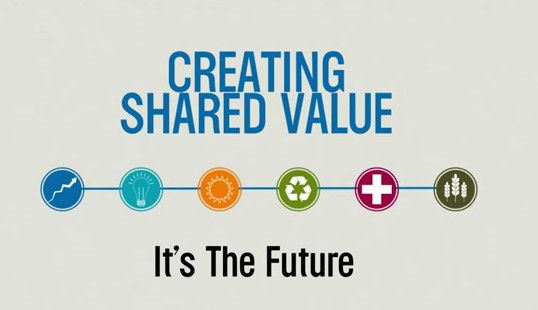The “Shared” Misconception: How Semantics Hinder the Adoption of Creating Shared Value
In the business world, language shapes perception. Words carry implicit meanings that can either drive or derail strategic initiatives. One such linguistic hurdle is the word “shared” in Creating Shared Value (CSV). Many business leaders instinctively dismiss CSV as a distributive or philanthropic concept, fearing it will cut into hard-earned profits. However, this perception stems from semantic bias rather than a true understanding of CSV.
Here I unpacks what CSV really is, why the word “shared” is misleading to some, and how business leaders can shift their perspective to unlock new opportunities for growth, innovation, and competitive advantage.
Coined by Michael Porter and Mark Kramer, CSV is a business strategy that aligns profit generation with positive societal impact. It is not corporate social responsibility (CSR) or philanthropy; rather, it is about solving societal problems through core business activities, leading to both economic and social benefits.
CSV creates competitive advantage by innovating new products and services that address societal needs, enhancing productivity by improving supply chains and workforce conditions
strengthening local economies, creating more sustainable markets for business. In simple terms CSV is not about distributing existing profits, but about creating new value in a way that benefits both the business and society. By addressing social needs and challenges, businesses can unlock new market opportunities, improve efficiency, and enhance their reputation, ultimately leading to increased profitability and long-term success.
Many executives struggle with CSV because the term “shared” suggests giving away profits rather than creating new value. This is a classic case of semantic bias—where a term’s wording, rather than its meaning, influences perception. The common misconceptions due to semantic bias are;
“CSV is about sharing profits like CSR.” (False—CSV grows profits by solving societal issues.)
“Shared Value means redistribution.” (False—CSV expands the value pie instead of splitting it.)
“It’s not relevant to our industry.” (False—CSV applies across industries, from healthcare to finance.)
Business leaders who move past semantic bias and grasp the real essence of CSV recognize its transformative potential. Companies like Nestlé, Unilever, and Discovery Health have leveraged CSV to drive both profitability and social good—proving that business success and societal impact are not mutually exclusive.
I work with executives, boards, and teams to raise awareness on CSV and guide its practical implementation. If you want to explore how CSV can drive growth, innovation, and long-term success for your company, let’s start the conversation.
Contact me to schedule a CSV awareness session for your team or board and develop a tailored CSV strategy for your business. hashtag#socialimpact hashtag#CSV hashtag#sharedvalue hashtag#sustainability

